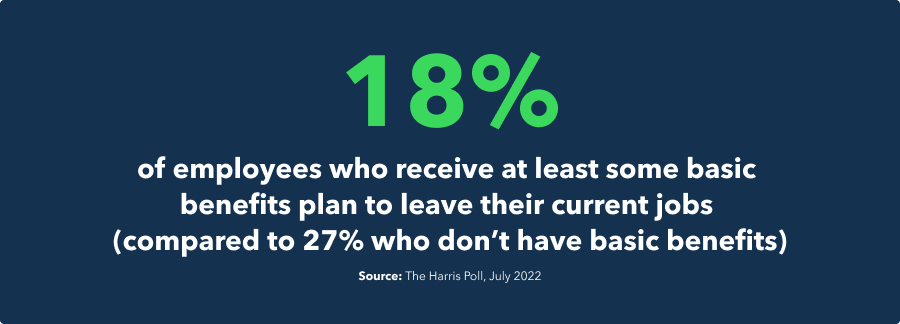7. Career growth opportunities
Small business workers crave career growth opportunities just as much as they crave health care benefits and paid leave—if not more. While 23% of small business workers expressed disappointment in their current benefits package, 31% said the lack of career advancement opportunities was most disappointing. But small businesses have the ability to offer growth opportunities that employees would be hard-pressed to find in larger corporations. Small business workers often have direct access to senior leadership, the ability to move quickly on new ideas, and can develop a true sense of ownership in the business.
Small businesses have what it takes
Finding and retaining top talent continues to be a challenge for small business owners—and it’s not going to get easier. Today’s employees expect competitive pay and benefits packages, but small businesses may find it difficult to compete with larger corporations with deeper pockets. By offering employees what they really want, things like flexible schedules, a strong company culture built on DEI, and the tools to grow and scale their careers, small businesses can fill the gap left by lower salaries and smaller benefits packages.
*Methodology
This survey was conducted online within the United States by The Harris Poll from June 8, - June 18, 2022 among 1,507 individuals in the United States who are age 18+, currently employed, and who have been in one of their jobs for at least 3 months or more. Sampling was done with the goal of representativeness among this population and weighting was completed to bring final data into line with the population. This online survey is not based on a probability sample and therefore no estimate of theoretical sampling error can be calculated.




















